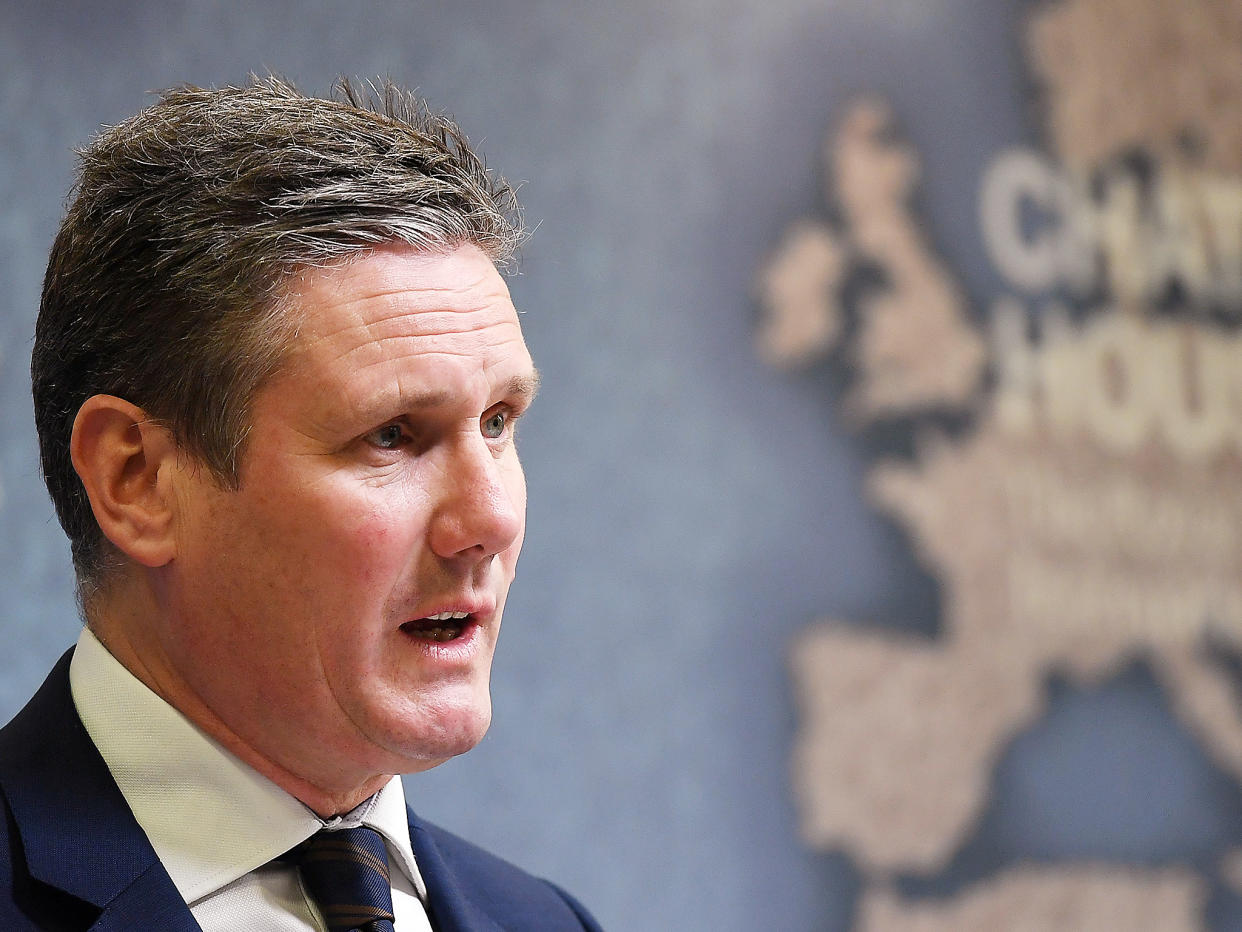This is what Keir Starmer should have said when questioned about Labour's position on Brexit

When Keir Starmer, Labour’s shadow Brexit Secretary, stepped up to another wobbly cardboard platform this morning, he needed something just shy of a miracle to wrest back control of the Brexit debate. Theresa May announced her snap election with the clever use of the language of “us vs them” – if you’re with us on Brexit, vote for us, she pleaded. To respond to that, the Opposition – taken by surprise, and struggling through in its own moment of chaos – needed one to provide thing: clarity.
Starmer set out to provide detail. Labour has a Brexit plan, he told us. In office, as Brexit Secretary proper, he would tear up the plans May has already made, scrapping the Great Repeal Bill, yet nevertheless listen to the voice of the people (that is, the 52 per cent of them who voted to leave the EU). He would continue to negotiate on membership of the single market and the customs union. He will “go back to the negotiating table” if necessary – and if MPs vote against the deal – and delay the process of leaving in order to get a better deal. And he wants to take back control – to coin a phrase – of our borders too, whatever that might mean in practice.
Clear? As the proverbial muddy ditch.
Despite the promise of an alternative to May’s hard and unforgiving Brexit, voters still don’t really know what they’d be getting from Labour. On only one point, Starmer could be straightforward: the rights of EU nationals to stay in the UK would be retained under any Brexit negotiated by a future Labour government. That is welcome. But on almost every other point, there is still obfuscation and confusion.
Some of that is inevitable at this stage in the negotiation process. While May promises certainty, she realistically cannot deliver it. Starmer is right to describe her approach as “rigid and reckless”, given that the Prime Minister has no control over the reactions and responses to negotiation that can be expected from the other member nations. But Starmer himself is in the same predicament.
First, he can’t promise to delay Brexit even if Parliament or a Labour government felt that the deal on the table was not good enough. Now that Article 50 is triggered, the two-year timebomb has been activated. There’s no going back – however much some (though not all) within the Labour Party might wish it.
What does it mean, then, to promise the “best deal” in these conditions? No more than May can possibly mean when she says the same.
Worse, Labour is riven by the issue of Europe internally; when Starmer speaks, he speaks primarily for himself (and likely as a future leadership candidate). He doesn’t, for example, speak for Kate Hoey or Frank Field, who have always been clear about their position. Other Labour MPs are now torn between their personal views and those of the overwhelming majority of their constituents in strong Leave areas.
A better approach would have been to be upfront and honest: Labour cannot promise a good deal – how could they, when it was the Conservatives who pushed us into a referendum without a sufficient plan if the electorate returned a vote to Leave? – but they can promise some basic ground rules will be met.
First, EU nationals will be able to stay in the UK (as Starmer confirmed). Second, the UK will have a fixed position on freedom of movement – either retaining it, or abandoning it – and that will not be subject to negotiation. Finally, Labour will seek to negotiate a relationship with the EU on the basis of full membership of the single market (with or without freedom of movement, as suggested previously) – but accepts that this may not be deliverable if the other EU states do not wish to offer it.
Not particularly inspiring, I grant you, but clear, straightforward and realistic – the type of opposition that might just quench the political thirst of a nation as it drags itself shamefully into the wilderness (or, at least, some 48 per cent of it). Because if Labour thinks it can put up a serious fight in long and tedious six weeks that lie ahead, it needs to stand for something positive on Brexit, rather than continuing to hedge its bets.
Of course it is tough to be honest with the electorate about Brexit when the circumstances surrounding it are in such considerable flux, but the fact that Starmer’s remarks manage to drag him into a needless linguistic wrangle over whether or not he was leaving the option open for a second EU referendum under Labour – he wasn’t, and was forced to clarify so when pressed by ITV’s political editor Robert Peston – demonstrate just how vague and meaningless most of Labour’s commitments on Brexit have been so far.
If the party wants to make significant gains – let alone consider itself a contender for power – on 8 June, it will have to do better than this.

 Yahoo News
Yahoo News 
